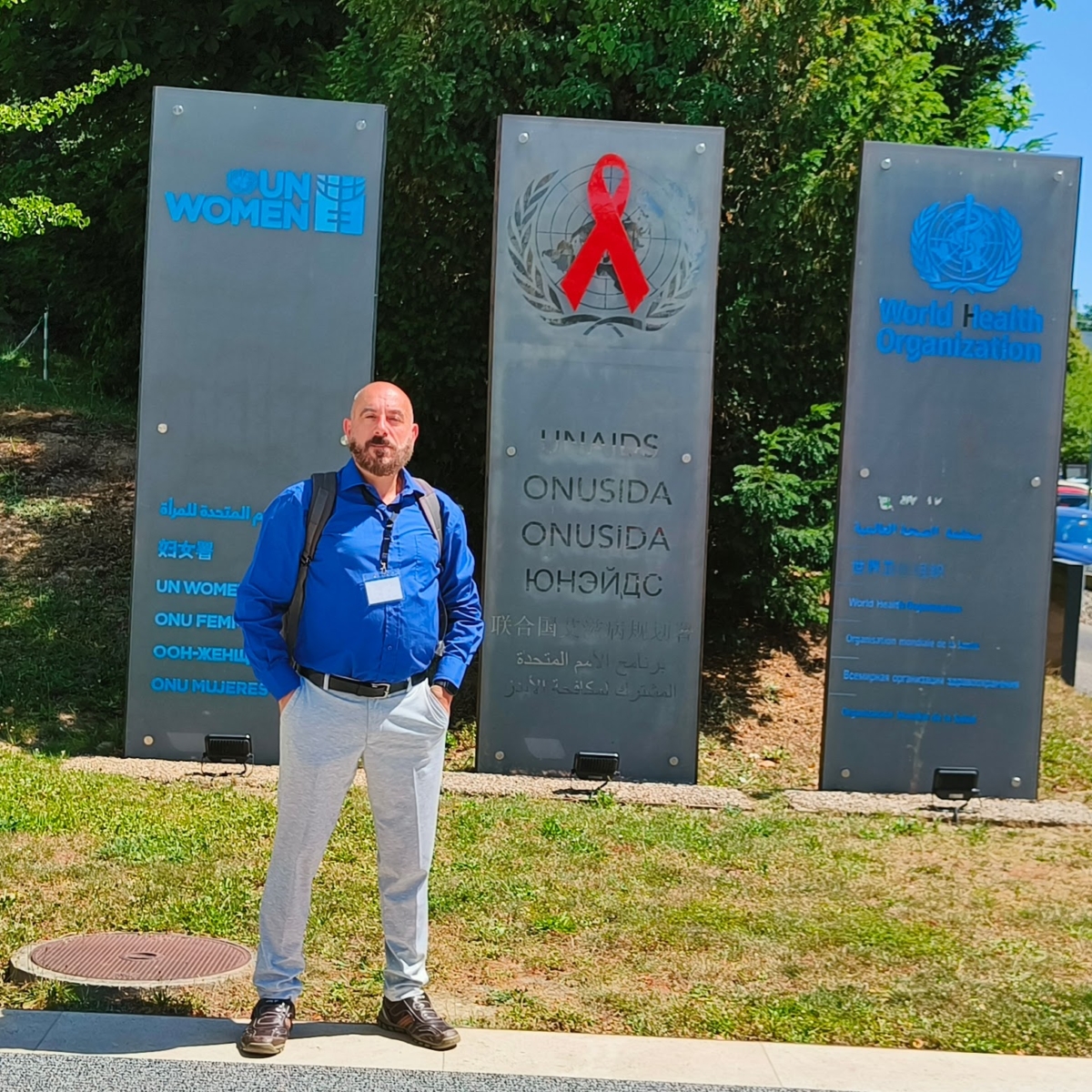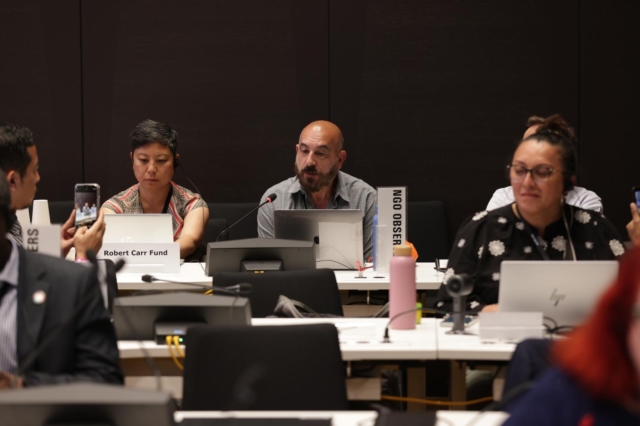
These remarks were made during the discussion of the proposed new Global AIDS Strategy (2026-31), the outline of which can be found here.
I’m the Executive Director of the HIV Justice Network, speaking on behalf of HIV JUSTICE WORLDWIDE, a coalition of community-led and community-based organisations working to end HIV criminalisation and related injustices.
Last June, I was a panellist during the Thematic Meeting on the Sustainability of HIV Response. You may recall that I highlighted that decriminalisation not only saves lives but it also saves money.
And so we welcome the direction of the new Global AIDS Strategy – especially Priority 2: People-focused – equity, dignity, and access, and Priority 3: Powered communities leading the HIV response, and the related results areas 6: End stigma and discrimination and uphold human rights and gender equality, and 8. Ensure community leadership.
But these priorities and results will remain aspirational unless they are backed by sustained, core funding for community-led networks.

Like UNAIDS itself, the HIV justice movement was born out of crisis, but it is sustained by hope. We know change is possible because we’ve seen it, even under the most difficult conditions. In fact, in just the past five years, 25 jurisdictions in 11 countries have repealed or revised their HIV criminalisation laws – motivated by everything from the futility of enforcement to the need to uphold privacy rights, recognise up-to-date science, and avoid harm to public health.
We have been making progress. But it is patently clear we cannot take any of that progress for granted. Communities, even if they and their organisations are criminalised, will continue to do much of the heavy lifting – reaching those who are excluded, challenging stigma and discrimination, and holding legal systems and governments accountable. That work takes time, trust, and skills – and it’s only possible when core funding is available to sustain expert teams and nurture leadership.
Global networks like ours are crucial in this ecosystem. With core, flexible funding – such as that provided by the Robert Carr Fund which has supported much of our work over the past decade – we support regional and national partners, strengthen the evidence base, build local advocacy capacity, and amplify community voices, including HIV criminalisation survivors. And we complement – not duplicate – Global Fund investments at the country level.
If we want a strategy that results in HIV justice, one that prioritises decriminalisation and is powered by communities, we must also continue to fund those communities that have brought us this far.